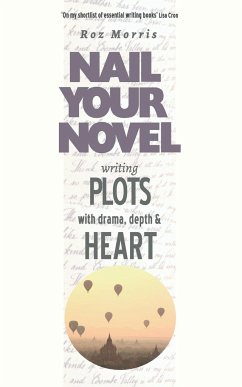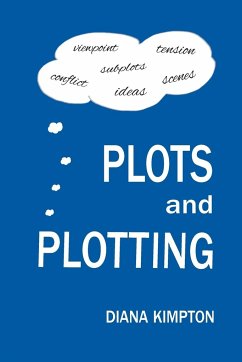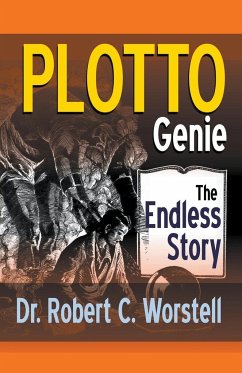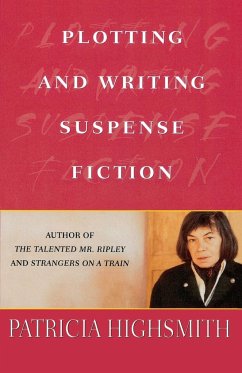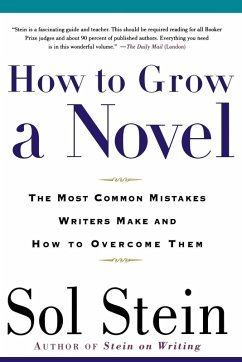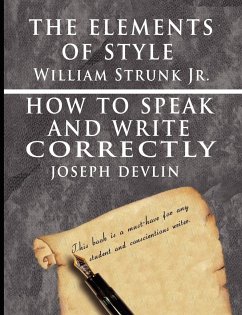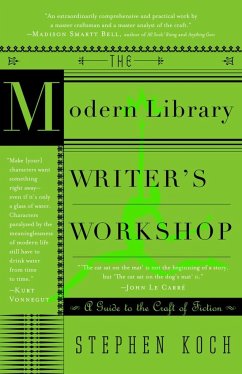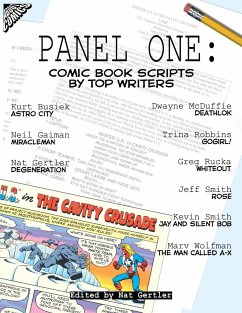
Plotto
The Classic Plot Suggestion Tool for Writers of Creative Fiction
Versandkostenfrei!
Versandfertig in 1-2 Wochen
23,99 €
inkl. MwSt.

PAYBACK Punkte
12 °P sammeln!
Have you struggled to expand your initial idea into a complete story? Plotting can be frustrating work! What if there were a tool for this very problem, so you could navigate these uncharted waters as quickly as possible? A tool that starts with what you have (a situation, perhaps, or a group of characters) and sets you on the road to new possibilities? Plotto does all this. Created by a master of "organized creativity," William Wallace Cook (one of the most prolific writers in history), Plotto has been prized by professional authors and screenwriters since its publication in 1928, and is still in demand today, with copies of the original edition selling for up to $400. This Norton Creek Edition is an exact reproduction of Cook's work. To keep the book down to a manageable size (300 pages of very small type) while retaining its powerful features, Cook uses a telegraphic format that takes some getting used to, so working your way carefully through the introduction and its examples is the key to professional-quality results. Because Plotto was written in the Twenties, its situations can seem old-fashioned and its terminology politically incorrect, but these problems are more apparent than real. Cook himself wrote both westerns and early classics of science fiction, so you see how replacing "stagecoach" with "star ship" or "dance hall girl" with "male stripper" are within the reach of anyone using the Plotto system, and, in fact, this kind of substitution is how the book is intended to be used, and is the key to its flexibility and enduring popularity.
Have you struggled to expand your initial idea into a complete story? Plotting can be frustrating work! What if there were a tool for this very problem, so you could navigate these uncharted waters as quickly as possible? A tool that starts with what you have (a situation, perhaps, or a group of characters) and sets you on the road to new possibilities? Plotto does all this. Created by a master of "organized creativity," William Wallace Cook (one of the most prolific writers in history), Plotto has been prized by professional authors and screenwriters since its publication in 1928, and is still in demand today, with copies of the original edition selling for up to $400. This Norton Creek Edition is an exact reproduction of Cook's work. To keep the book down to a manageable size (300 pages of very small type) while retaining its powerful features, Cook uses a telegraphic format that takes some getting used to. To get up to speed quickly, get Plotto's companion volume, the Plotto Instruction Booklet. This is the key to avoiding false starts and getting professional-quality results quickly. What is Plotto? Let's start by what it is not: it's not a random plot generator. There is no randomness in Plotto. Instead, Plotto is a well-indexed catalog of character situations, especially character conflicts. Each conflict has suggestions for both backstory and future developments. Plotto also has multiple indexes. For example, you can enter through the combination of characters in the conflict (such as the male protagonist and the female protagonist), the situation (needing money to get out of a scrape), or starting at the end and working backwards (becoming involved in the weird and occult and coming to a tragic end). Thus, Plotto is equally useful for plots, subplots, and backstory. Because Plotto was written in the Twenties, its situations can seem old-fashioned and its terminology politically incorrect. These problems are more apparent than real. Cook himself wrote both westerns and early classics of science fiction, so you see how replacing "stagecoach" with "star ship" or "dance hall girl" with "male stripper" are within the reach of anyone using the Plotto system. In fact, this kind of substitution is an ordinary and expected part of the Plotto system, and is essential to the fruitful use of the Plotto system, and is the key to its flexibility and enduring popularity. This Norton Creek Press edition of Plotto is an exact replica of the original edition. Visit our Web site at http://www.nortoncreekpress.com for more classic reprints, including William Wallace Cook's Plotto Instruction Booklet and his autobiographical The Fiction Factory.






